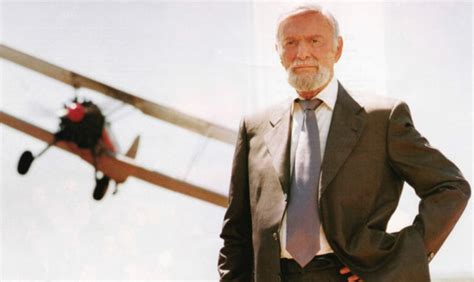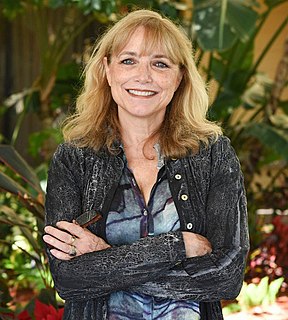A Quote by Amy Sherman-Palladino
It helps, if you've directed, to be able to write a script that is director-friendly. You're really telling them [directors], "This is how it works on this show." It takes some of the guesswork out of it.
Related Quotes
Film is such a director's medium; you're really in their hands in terms of the real storytelling. As an actor, you can give a performance moment to moment and some of your takes will be used and some of them won't. I think there are great films you can make with bad performances, and vice versa. There are all combinations of those things. It's really down to the director what happens, I think, so that's why it's really good to work with very talented, bold directors.
Well, there's two things I have criteria for doing a film: The script, which is the story, and the filmmaker, and it's a filmmaker's medium. I like really strong directors, and so when I do a film, I'm out there to serve the director, really, which is in turn to serve the script, to serve the director cause he's the one making the film. I relied on Todd Haynes for that.
It's great when improv is encouraged. It's a really fun thing. It depends on who's in the movie and how their process works, as well. It takes a director who is open to that because you have a script, but then something funny could happen on set. So, to have people around you who encourage improv is really exciting.
You have to understand that people feel threatened by a writer. It's very curious. He knows something they don't know. He knows how to write, and that's a subtle, disturbing quality he has. Some directors without even knowing it, resent the writer in the same way Bob Hope might resent the fact he ain't funny without twelve guys writing the jokes. The director knows the script he is carrying around on the set every day was written by someone, and that's just not something that all directors easily digest.
If you put someone in a room with no script to direct, they're just going to sit there. Writing scripts is the execution for a show. Then the director takes that and hires people. It's like trying to build a house without any bricks. You need the script. I could build the house, but I have to know how.
Be undeniably good. When people ask me how do you make it in show business or whatever, what I always tell them & nobody ever takes note of it 'cause it's not the answer they wanted to hear-what they want to hear is here's how you get an agent, here's how you write a script, here's how you do this-but I always say, “Be so good they can't ignore you.” If somebody's thinking, “How can I be really good?” people are going to come to you. It's much easier doing it that way than going to cocktail parties.
With a good script a good director can produce a masterpiece; with the same script a mediocre director can make a passable film. But with a bad script even a good director can’t possibly make a good film. For truly cinematic expression, the camera and the microphone must be able to cross both fire and water. That is what makes a real movie. The script must be something that has the power to do this.
Most directors, I discovered, need to be convinced that the screenplay they're going to direct has something to do with them. And this is a tricky thing if you write screenplays where women have parts that are equal to or greater than the male part. And I thought, 'Why am I out there looking for directors?'—because you look at a list of directors, it's all boys. It certainly was when I started as a screenwriter. So I thought, 'I'm just gonna become a director and that'll make it easier.'
I always feel like I learn more from directors that are new, and I also am able to understand how much I really do know about filmmaking when you work with directors that maybe don't have as much experience, so you're able to sort of take the reins. I know how to do these movies, I've done so many of them and have learned from new directors who are usually willing to try new things and are more open to allowing someone like me to kind of come in and just do what I know how to do.
I've been a little disappointed in directors in America. I'm really after a theater that doesn't just deal with the actual texts that I brought in. But with a director that really deals with images too, that takes the play to another level. We have to remember that theater takes place in the third dimension, and we have to take into consideration the visual aspect of the play. I think images are important for the theater. Because I do write images.





































